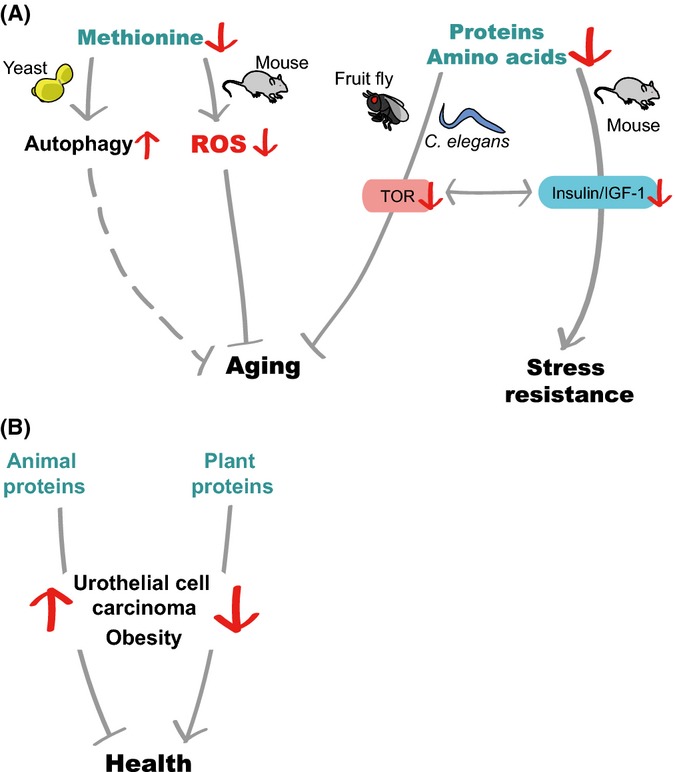Figure 2.

Restriction of amino acids or proteins increases stress resistance and influences longevity in various model organisms. (A) In yeast, methionine restriction decreases translational capacity and increases autophagy, indirectly interfering with aging. In addition, methionine restriction increases the lifespan of mice, possibly by downregulating the levels of reactive oxygen species (ROS). Dietary restrictions of protein intake increase the lifespan of various insects, including Drosophila. In Caenorhabditis elegans, reduced protein intake extends lifespan by inhibiting the insulin/insulin-like growth factor-1 (IGF-1) and target of rapamycin (TOR) signaling pathways. In mice, restrictions on the intake of protein or specific amino acids decrease oxidative stress by reducing insulin/IGF-1 signaling. (B) The levels of animal proteins positively correlate with the risk of urothelial cell carcinoma and obesity, whereas the levels of plant proteins exhibit a negative correlation.
